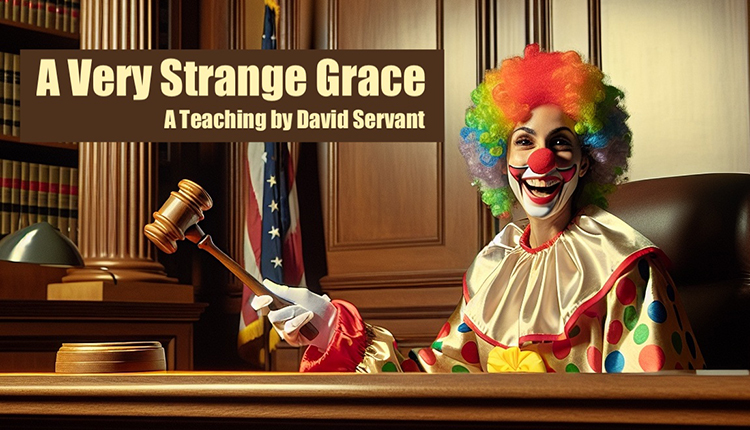
If I was found guilty of 1st-degree murder in a court of law, I would be very happy to hear the judge begin his sentencing speech with these words: “Mr. Servant, although you have been found guilty of 1st-degree murder, I’m going to show you some grace.”
Now, imagine that the judge’s next words were, “Rather than sentence you to death in the electric chair, I’m going to punish you with life in prison.” I would be very relieved to hear those words, and I would sincerely thank the judge for his undeserved favor—his grace.
If, however, his next words were, “Rather than sentence you to death in the electric chair, I’m going to send you to prison for ten years,” I would be utterly shocked, and I would thank the judge profusely for his grace.
But imagine if his next words were, “Rather than sentence you to death in the electric chair, I’m going to let you go free, without any punishment whatsoever. But, if you murder anyone else, there will be no mercy from me the next time. You will be surely face a sentence of capital punishment.”
I would get down on my knees and thank the judge for his grace for as long as I would be allowed. And I would walk from the court a very happy man.
All three examples I have just cited are undeniable examples of grace…a life sentence in prison instead of death, ten years in prison instead of death, or not going to prison, but required to reform, instead of death. The first and second examples illustrate that grace can still punish wrongdoing. The third example illustrates that grace can be conditional. Anyone who says that grace can never be conditional hasn’t thought about it very long.
Now, imagine that the judge’s next words were, “Rather than sentence you to death in the electric chair, I’m going to let you go free, without any punishment whatsoever. On top of that, I’m giving you a license to murder as many people as your heart desires for the rest of your life. In fact, Mr. Servant, there is no crime you can commit that will ever result in any punishment. From here on in, you are guaranteed to be in right standing with the law, no matter what you do, or how you live your life.”
If that happened, I would wait for the cocaine to wear off so that I would stop hallucinating. Because no judge would ever say such a thing.
That fourth example is an illustration of the false-grace gospel that is so prevalent in the “church” today (and I put the word “church” in quotes, because any church that advocates such a gospel is not actually a church by biblical definition).
Those who advocate the false-grace gospel—which is actually nothing more than a license to sin—surely have lost their minds, either due to drugs or theology.

